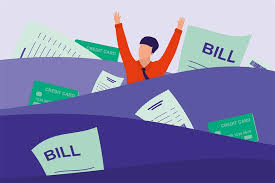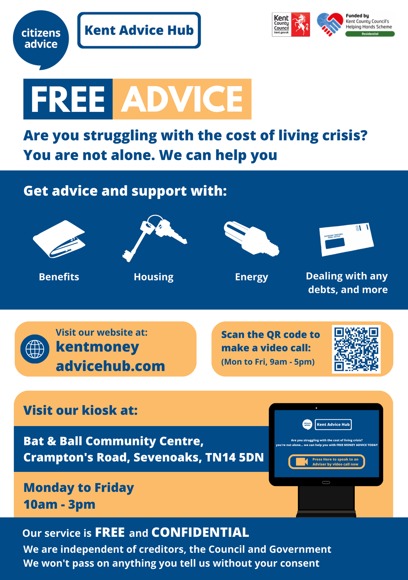- Home
- Parent Area
- Parent Area Links
- Cost of Living Support
Cost of Living Support

Our vision is that every student will fulfil their God-given potential, ready to serve others and equipped to be confident leaders in society. To ensure every child has this opportunity we want to offer practical guidance and support for families having financial issues. Please contact your child’s Pastoral Lead if you would like to discuss this issue further Click Here.
If your financial situation has changed recently please visit the Free School Meals section of the website where you can see if you are eligible to claim for this allowance. If you require any assistance with completing this form please contact the Pastoral Lead for your child.
Kent County Council – Cost of Living guidance and support schemes
Please click the link: https://www.kent.gov.uk/leisure-and-community/cost-of-living-support
Sevenoaks Town Council – Cost of Living guidance and support schemes

”Are you struggling with the cost of living crisis? Get FREE and confidential advice on benefits, housing, energy and dealing with debts. The Kent Advice Hub, from Citizens Advice, is available at Bat and Ball Centre, Cramptons Road TN14 5DN Monday to Friday 10am to 3pm. The hub is a tablet in a private space you can use to access help and advice and to make video calls. The service is totally independent of council, creditors and government. Please do use this valuable service to access help.”
10 tips to help you reduce your cost of living
1. Track your spending and set a budget - The very first step you should take when trying to reduce your cost of living, is to manage your money and set a budget. This will help you to understand your spending habits, monthly income and overall financial position. Work out what money you have coming in and what money you have going out – be as detailed as possible to capture everything. You can use this tool to help you understand your money - or an online budget planner. Once you understand how much money you are spending, you can then work out how much you could save if you stop spending on non-essential items.
2. Haggle where you can - Lots of people are looking at ways they might be able to save money on the services they use every day. This includes phone, broadband and pay-TV services. If your bill's going up, or you're on a promo deal that's ending, switching isn't the only way to cut costs. You can try haggling to get the best deal - find more tips to help you get the best deal here. There are also some saving schemes to help families on a low income.
3. Turn down your thermostat - Almost half the money spent on energy bills is absorbed by heating and hot water costs. Turning your heating down by just one degree could save up to £80 a year. Keeping your thermostat at a lower temperature around 17 degrees can make all the difference. Adding layers and blankets before turning on the heating can also help to keep away the cold. From insulating your house to making regular hot drinks, here are some more tips to help you keep warm this winter.
There are also many grants available to help you with rising energy prices. Households could get up £350 this year to help with rising energy prices. There is also the Warm Home Discount Scheme, which could help you get £140 off your electricity bill this Winter.
If you’re struggling with housing payments, local authorities can award a discretionary, limited and temporary housing payment to claimants if existing benefits do not cover housing costs.
4. Chop your food spend - Your food shopping is one of the biggest costs you have to budget for. By looking for ways to save money, you may find increased food costs easier to deal with. Save money by preparing and cooking your own meals as this is generally cheaper than buying takeaways or ready meals, and healthier too!
Draw up a weekly meal plan using up ingredients you already have and make a shopping list of any missing items - shopping online can also help you to reduce costs. Choosing veg over meat and fish and batch cooking can also help to save costs. Find more tips to eat well for less here.
5. Switch off standby - You can save around £40 a year just by remembering to turn your appliances off standby mode. Turning off your lights when you’re using them and replacing the lights in your home with LED bulbs can also help you save money on your energy bill. Modern LED bulbs use 90 per cent less electricity than traditional incandescent lights and last ten times longer.
Almost all electrical appliances can be turned off at the plug without upsetting their programming. You may want to think about getting a standby saver or smart plug that allows you to turn all your appliances off standby in one go.
6. Cut your fuel costs - Having a lighter vehicle load can help contribute to saving fuel. The lighter the vehicle, the more fuel-efficient it will be - so make sure to keep your boot space as empty as you can. Tyre pressure can also affect fuel efficiency - it’s important to check your tyre pressure regularly, you can find your car’s correct tyre pressure here.
Visit PetrolPrices to find the cheapest stations where you can fill up. It can save you £10 on the cost of a full tank of petrol. Supermarkets tend to offer the lowest prices while motorway service stations are the most expensive
Where possible, cycle or walk - making small changes will not only help you to save fuel it will also help to boost your physical health too.
7. Embrace energy-efficient appliances - When it’s time to swap or get a new appliance, going for one with a high energy-efficiency rating can be worth the investment.
Dryers and refrigerators are two of the most energy-intensive appliances in a home and replacing these with more efficient models can cut electricity usage by half. New tumble dryers have heat pumps that recirculate the warm air instead of releasing it which can significantly reduce electricity usage. If you can, avoid using a tumble dryer for your clothes and dry clothes outside in warmer weather to save £40+ a year. Find out which appliances use the most energy in your home.
8. Don’t let savings go down the drain - Taking 4-minute showers could save a typical household £45 a year on their energy bills. Some of us might enjoy a long soak in the bath, but swapping just one bath a week could make a difference. You can also save around £20 a year on your energy bill by using your washing machine more carefully - try a 30-degree cycle instead of higher temperatures and only wash your clothes when you have a full load.
Find out how saving water at home can help your wallet and the environment and how you can cut your water bill.
9. Pay less for your property
If you own your home and have a spare room, you could look into renting it out or putting it on AirBnB for some extra cash. You could also rent out your driveway, especially if you live near any events or sports matches where parking is limited. If you’re finding it hard to pay your mortgage, take a look at MoneySavingExpert’s advice.
If you’re renting, could you find a cheaper property elsewhere? Moving is not for everyone but it could be worth considering, especially if you aren’t happy in the place you’re currently in. If you’re thinking about moving further away from your workplace and commuting, make sure that the increased commuting costs don’t offset the savings you’d make with cheaper rent.
10. See what support is available
Check what benefits you’re entitled to, what help you can get with your energy bills and what support is available for essential costs: https://www.citizensadvice.org.uk/debt-and-money/get-help-with-the-cost-of-living/
Remember, if you’re struggling to make ends meet, we’re here for you. We can help you to maximise benefits, explore grants available and get you back on track with your finances. Get in touch with us to see how we can support you.


